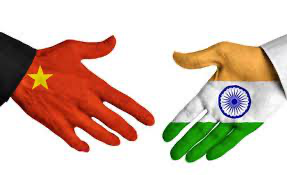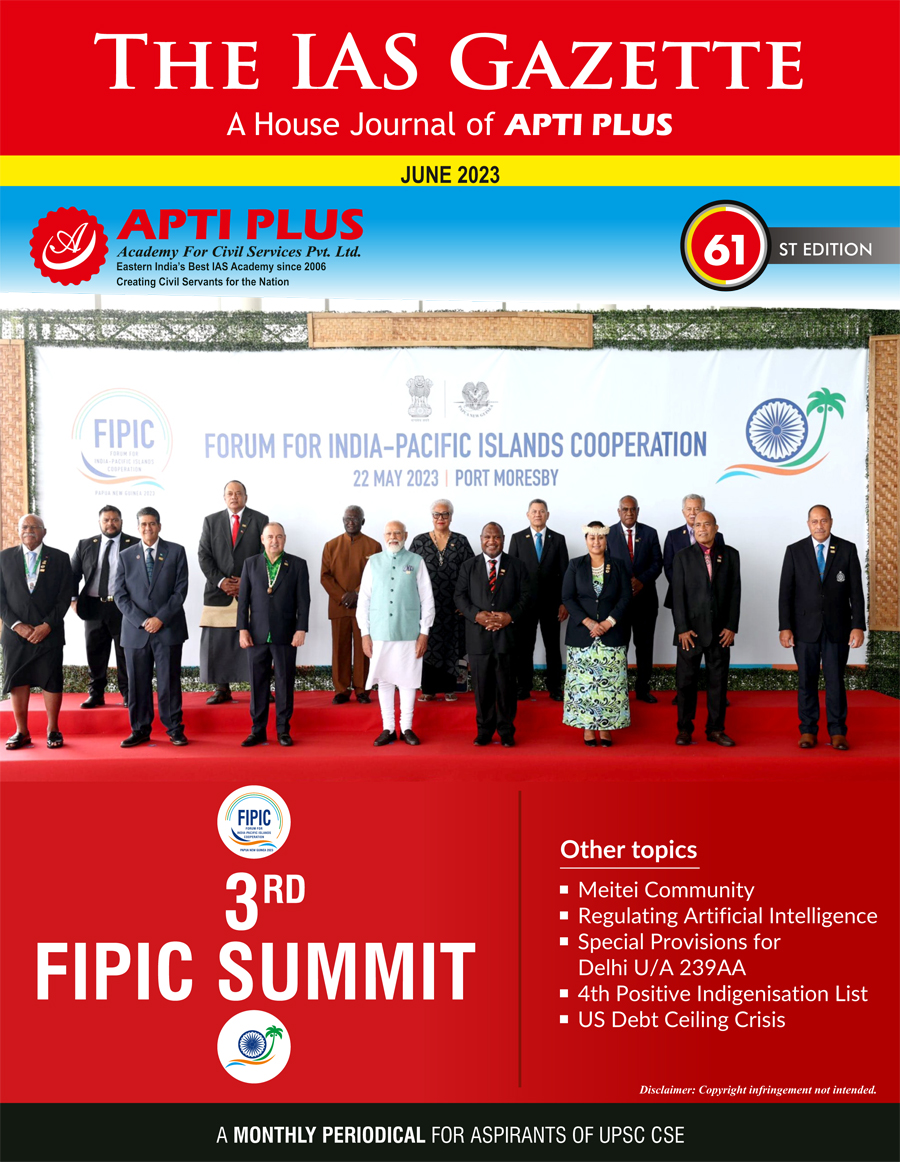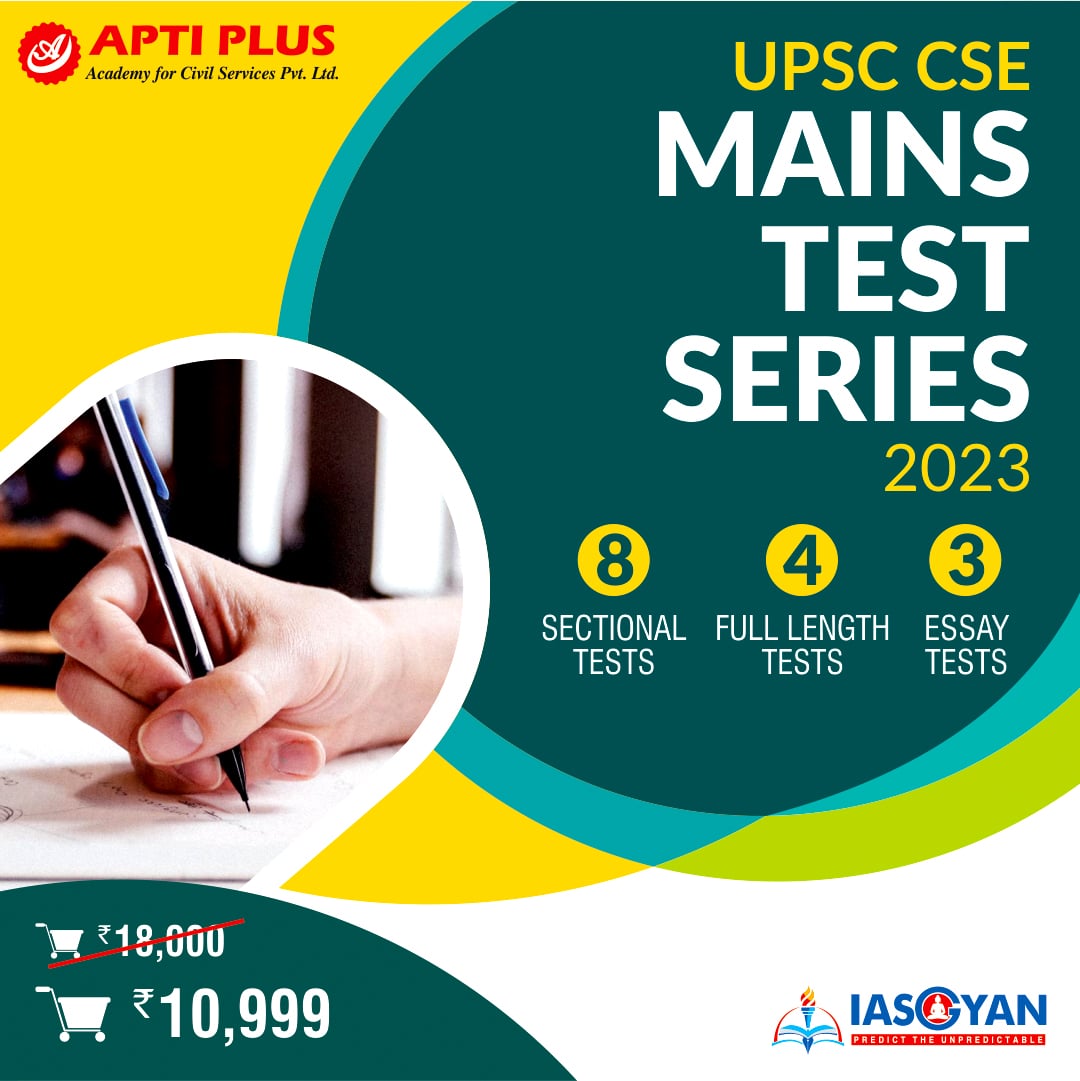Description

Disclaimer: Copyright infringement not intended.
Context: Meeting between the Defence Minister of Vietnam, General Phan Van Giang, and the President of India, Smt Droupadi Murmu, at Rashtrapati Bhavan on June 19, 2023.
Details
- Defence Minister of Vietnam, General Phan Van Giang, called on the President of India, Smt Droupadi Murmu, at Rashtrapati Bhavan on June 19, 2023.
Historical and Strategic Importance:
- President Murmu highlighted the rich history of civilizational and cultural linkages between India and Vietnam, spanning over 2000 years.
- Vietnam is considered an important pillar of India's Act East Policy and a key partner in the Indo-Pacific Vision.
Comprehensive Strategic Partnership:
- The India-Vietnam 'Comprehensive Strategic Partnership' has broadened the scope of bilateral collaboration.
- Areas of collaboration include defense and security cooperation, trade and investment relations, energy security, development cooperation, cultural exchanges, and people-to-people relations.
Strong Defense Cooperation:
- Bilateral defense cooperation is one of the strongest elements of the India-Vietnam partnership.
- The defense engagement encompasses various areas:
- Capacity Building: Efforts to enhance the military capabilities and expertise of Vietnam.
- Industry Cooperation: Collaborative projects and partnerships in the defense industry.
- Peacekeeping: Joint efforts in promoting peacekeeping operations.
- Joint Exercises: Participation in joint military exercises to strengthen interoperability and cooperation.
Broad Range of Collaboration:
- Besides defense, India and Vietnam collaborate in other areas:
- Trade and Investment: Fostered economic ties and increased bilateral trade.
- Energy Security: Cooperation in ensuring energy stability and sustainability.
- Development Cooperation: Joint efforts for mutual development and progress.
- Cultural and People-to-People Relations: Promoting cultural exchanges and fostering people-to-people connections.

About Vietnam
- Vietnam is located in Southeast Asia, bordered by China to the north, Laos and Cambodia to the west, and the South China Sea to the east and south.
- The country has a diverse geography, including mountains, coastal plains, and fertile deltas.
Historical Background:
- Vietnam has a rich history, with early settlements dating back to the Bronze Age.
- The country has experienced various dynasties, colonial rule by the French, and the Vietnam War, which ended in 1975.
- The reunification of North and South Vietnam led to the formation of the Socialist Republic of Vietnam.
Political System:
- Vietnam is a socialist republic, governed by the Communist Party of Vietnam.
- The country follows a one-party system, with the Communist Party holding significant power.
- The National Assembly is the highest legislative body in Vietnam.
Economy:
- Vietnam has undergone significant economic reforms since the late 1980s, transitioning from a centrally planned economy to a market-oriented socialist economy.
- The country has experienced rapid economic growth, becoming one of the fastest-growing economies in the region.
- Key sectors of the Vietnamese economy include manufacturing, services, agriculture, and tourism.
Foreign Relations:
- Vietnam follows a policy of "open-door diplomacy" and maintains diplomatic relations with numerous countries worldwide.
- The country actively engages in regional and international organizations, including ASEAN (Association of Southeast Asian Nations) and the United Nations.
- Vietnam has pursued closer relations with neighboring countries and developed strategic partnerships with key global players.
Cultural Heritage:
- Vietnamese culture is influenced by Confucianism, Buddhism, and Taoism, as well as its indigenous traditions.
- Traditional Vietnamese music, art, and dance are an integral part of the country's cultural heritage.
- The Vietnamese language, influenced by Chinese characters, is the official language of the country.
Tourism and Natural Beauty:
- Vietnam is known for its scenic beauty, with attractions such as Ha Long Bay, Hoi An Ancient Town, and the Mekong Delta.
- The country offers diverse experiences, including cultural tours, adventure activities, and culinary delights.
- Tourism plays a significant role in Vietnam's economy, attracting millions of visitors each year.
Challenges and Future Outlook:
- Vietnam faces challenges such as environmental degradation, income inequality, and limited political freedoms.
- The government is focused on addressing these challenges while promoting sustainable development and improving the living standards of its citizens.
- Vietnam's strategic location, growing economy, and dynamic workforce position it as a key player in the region's economic and geopolitical landscape.

About India Vietnam Relations
- Vietnam and India share a rich history of civilizational and cultural linkages spanning over 2000 years.
- Historical interactions and cultural exchanges have contributed to a sense of mutual understanding and cooperation between the two countries.
Act East Policy and Indo-Pacific Vision:
- Vietnam is an important pillar of India's Act East Policy, which aims to enhance India's engagement with Southeast Asian nations.
- Vietnam is considered a key partner in India's Indo-Pacific Vision, which seeks to promote a free, open, inclusive, and rules-based Indo-Pacific region.
Comprehensive Strategic Partnership:
- Vietnam and India have established a Comprehensive Strategic Partnership to deepen their bilateral collaboration.
- This partnership encompasses various areas of cooperation, including defense and security, trade and investment, energy security, development cooperation, cultural exchanges, and people-to-people relations.
Defense Cooperation:
- Defense cooperation is one of the strongest elements of the Vietnam-India partnership.
- Both countries engage in capacity building initiatives, industry cooperation, peacekeeping efforts, and joint military exercises.
- Defense collaboration contributes to strengthening the security architecture in the region and enhancing the capabilities of both nations.
Trade and Investment Relations:
- Vietnam and India have been actively promoting trade and investment relations.
- Bilateral trade has been increasing steadily, with both countries exploring new avenues for economic cooperation.
- Efforts are underway to enhance trade facilitation, remove barriers, and explore the potential for a free trade agreement.
Energy Security:
- Energy security is an important aspect of the Vietnam-India relationship.
- Both countries collaborate in areas such as oil and gas exploration, renewable energy, and energy efficiency.
- Cooperation in the energy sector helps ensure a stable and sustainable energy supply for both nations.
Development Cooperation:
- Vietnam and India engage in development cooperation initiatives to support each other's socio-economic progress.
- Areas of cooperation include infrastructure development, capacity building, human resource development, and technology transfer.
Cultural and People-to-People Relations:
- Cultural exchanges and people-to-people interactions play a vital role in strengthening Vietnam-India relations.
- Both countries promote cultural festivals, exchanges of artists, scholars, and students, and encourage tourism between the two nations.
|
PRACTICE QUESTION
Q) In recent years, India has advocated for greater representation of African countries in global forums like the G20. Discuss the significance of India's proposal to grant full membership to the African Union in the G20. How can this initiative contribute to a more inclusive and representative global governance architecture? (200 words)
|
https://pib.gov.in/PressReleasePage.aspx?PRID=1933464
















